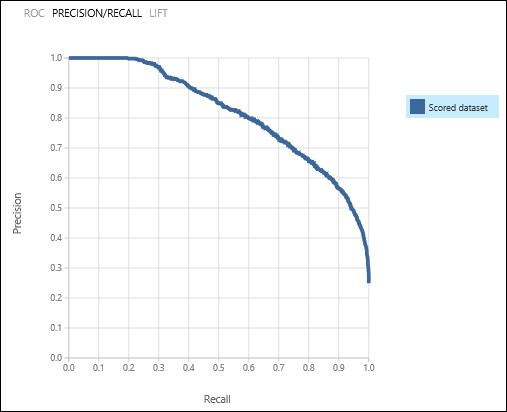Neural network performance measures
In the meantime, however, let's make the concepts of the neural net clear by looking at the options for visualizing the results.
Receiver Operating Characteristic curve
Here is an example of a Receiver Operator Characteristic (ROC) curve, where we can see the data analysis and the changes we have in the data accordingly to the time.

The closer this curve is to the upper left corner, the better the model's performance is. It means it is better at identifying the true positive rate while minimizing the false positive rate. In this example, we can see that the model is performing well.
Precision and Recall curve
Precision and Recall curve are very useful for assessing models in terms of business questions. They offer more detail and insights into the model's performance. Here is an example:

Precision can be described as the fraction of times that the model classifies the number of cases correctly. It can be considered as a measure of confirmation, and it indicates...



























































